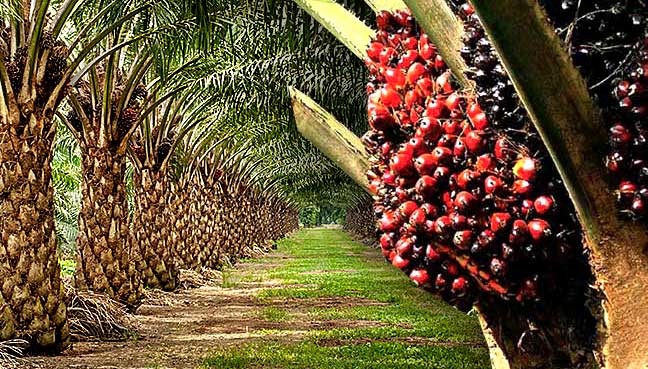The Oil Palm Development Association of Ghana has expressed excitement about the interest of Malaysia and other giant oil palm countries in Ghana’s oil palm sector.
The 44 palm oil actors from across the country have been deliberating on how to take advantage of the situation and to leverage it to make critical gains in the sector.
The deliberations of the association with the support of Solidaridad, an international civil society organisation, is to ensure a vibrant and sustainable oil palm sector and the need to ensure value chain stakeholders have can engage policymakers on sector challenges as well as potential solutions that will create an enabling environment for businesses to thrive.
The training was organised to equip executives of the oil palm value chain association with tools and strategies to influence policy.
Country Representative of Solidaridad, Susan Yemidi, indicated that there was a need to ensure value chain stakeholders can engage policymakers on sector challenges as well as potential solutions that will create an enabling environment for businesses to succeed.
“We are looking at issues of sustainability, issues of climate change, and issues of incomes. We are also looking at policy directions that would enable the sector to thrive.
Since Malaysia has the plan to come into Africa and Malaysia is producing more, they have targeted Ghana and so we need to produce more with less to support the African market,” she said.
The Oil Palm Development Association of Ghana, a private sector industry association is focused on promoting socially responsible, ecologically friendly, and economically sustainable production, value addition, and trading of oil palm.
The oil palm value chain also covers smallholder and out-grower farmers, nucleus estate plantations, millers, refiners, manufacturers of soaps, and other consumer goods.
According to the President of the Association, Samuel Avaala, the association, has over the years been engaging policymakers and the government on critical issues that affect the oil palm sector in Ghana.
He said the association is excited already by the interest of Malaysia in Ghana’s oil palm.
“Ghana is a net importer of palm oil. It means we have room to produce as much as possible so that we can meet market local demand. We are not alone in this deficit in production.
In fact, a report by Reuters in June said that Malaysia exports to Sub-Saharan Africa have been averaging 6 million metric tonnes per annum over the last 10 years.
In 2020, they project that it’s going to hit 9 million metric tonnes. That’s another 3 million metric tonnes more. And that’s where we need to take advantage of. They have seen the opportunities, they have the gap and they are coming,” he averred.
The Oil Palm Development Association of Ghana has also been campaigning for the exemption of imported palm oil and vegetable oils from the government’s 50% reduction in the benchmark values against which duties paid by importers at Ghana’s ports are calculated instituted in April 2019.
The workshop was organized under the second phase of Solidaridad’s Sustainable West Africa Palm Oil Programme (SWAPP II), jointly funded by the Embassy of the Kingdom of the Netherlands in Accra and the Swiss government through its State Secretariat for Economic Affairs (SECO).
So far, over 10,000 oil palm farmers have been trained in best management practices under SWAPP II.
The SWAPP II seeks to improve the oil palm value chain, increase incomes of smallholder farmers and processors, and generate economic growth and jobs in Ghana, Cote D’Ivoire, Liberia, and Sierra Leone.
SWAPP II is part of Solidaridad’s global agenda to build sustainable production for oil palm and other commodities.
Solidaridad has over 50 years of experience in developing solutions to make underprivileged communities more resilient.
It is currently working in over 40 countries, on five continents through eight independently supervised regional offices.
In West Africa, Solidaridad implements sustainability interventions in Cote d'Ivoire, Ghana, Liberia, Nigeria, and Sierra Leone in the cocoa, gold, and oil palm value chains.
Latest Stories
-
Let’s prioritize research quality in higher education institutions for industrial growth-Prof. Nathaniel Boso
4 hours -
Herman Suede is set to release ‘How Dare You’ on April 24
8 hours -
Heal KATH: Kuapa Kokoo, Association of Garages donate 120k to support project
8 hours -
KNUST signs MOU with Valco Trust Fund, Bekwai Municipal Hospital to build student hostel
8 hours -
The influence Ronaldo has on people, Cadman Yamoah will have same on the next generation – Coach Goodwin
9 hours -
Gender Advocate Emelia Naa Ayeley Aryee Wins prestigious Merck Foundation Awards
10 hours -
South Africa bursary scandal suspects granted bail
10 hours -
Ecobank successfully repays $500m Eurobond due April 18
10 hours -
Re: Doe Adjaho, Torgbui Samlafo IV, call for Unity among Paramountcies in Anlo
10 hours -
Extortion and kidnap – a deadly journey across Mexico into the US
10 hours -
Rihanna says fashion has helped her personal ‘rediscovery’ after having children
11 hours -
Development Bank Ghana targets GH¢1bn funding for commercial banks in 2024
11 hours -
Shatta Movement apologises to Ghana Society of the Physically Disabled after backlash
12 hours -
Sammy Gyamfi writes: Tema-Mpakadan Railway Project; A railway line to nowhere
12 hours -
Bright Simons: Is the World Bank saving or harming Ghana?
12 hours

